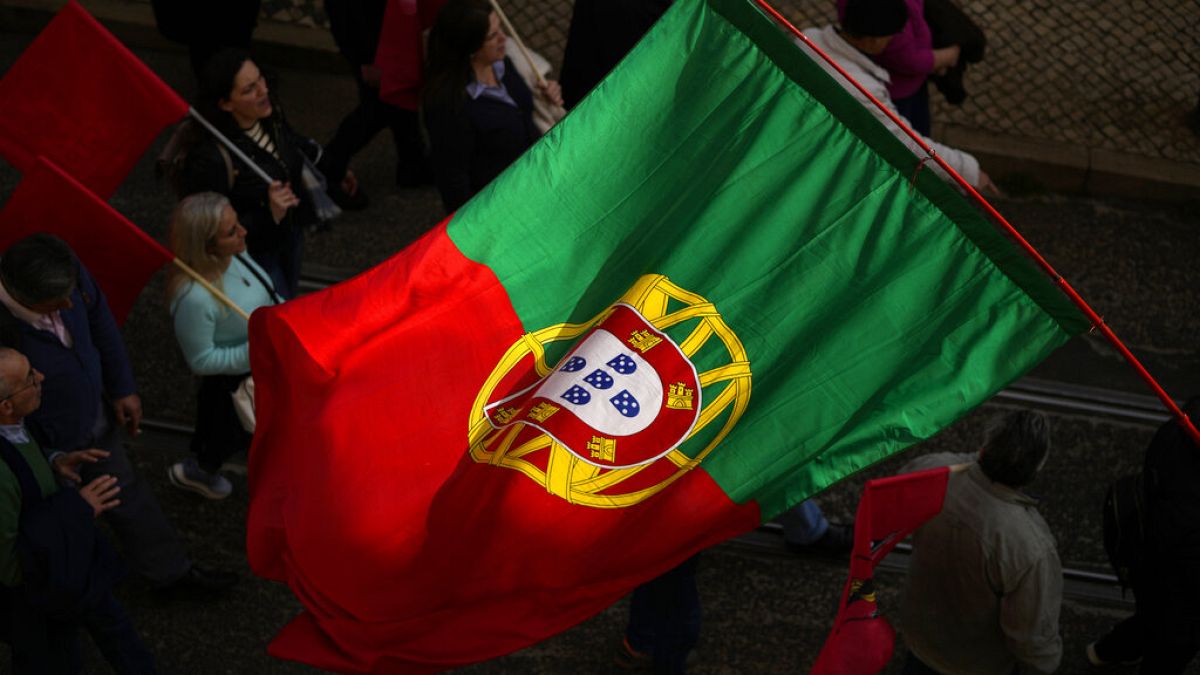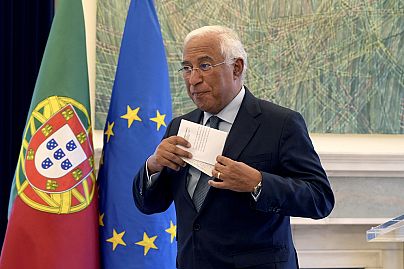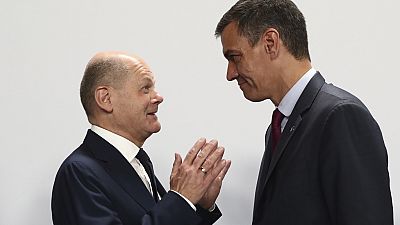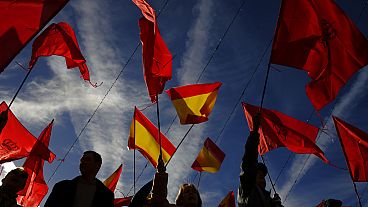Voting on the budget is the glue that holds the Portuguese parliament together, but amid a corruption scandal that has sent the government packing, what comes next for the country's feeble economy?
Portugal will hold a snap parliamentary election on 10 March 2024, President Marcelo Rebelo de Sousa said on Thursday, following the abrupt resignation of the country's socialist prime minister amid a corruption investigation.
Yet, the president said he would only disband parliament after the final vote on the 2024 budget bill, due on 29 November. As the Socialist Party (PS) has a majority of seats, there isn't much doubt that the budget will get through.
Rebelo de Sousa said allowing MPs to approve the budget will let them meet "the expectations of many Portuguese citizens" and invest EU recovery funds into various projects.
The decision to call an early election is expected to have a positive impact on the economy, according to experts, despite political instability's usually detrimental effect.
"Political uncertainty is usually not positive for the economy but the timing for the early elections (March 2024) decided by the Portuguese President should ensure the budget is approved, removing some of that uncertainty for the short term," said André Azevedo Alves, professor of Political Science at the Catholic University of Portugal and St. Mary's University in London to Euronews Business.
Amidst the country's shrinking GDP and a cost of living crisis, the budget promises lower income tax rates for the middle class, social benefits focused on the poorest, and a 24% boost in public investment to spur slowing economic growth.
"There were some rules regarding mortgages and there's also a tax decrease in personal income taxes, which is going to mitigate partly the cost of living crisis," Susana Peralta, associate professor of Economics at Nova SBE, told Euronews Business. "And then we don't know what will happen to this state budget once the new government is going to be elected."
Opinion polls are scarce but the few that exist suggest that the centre-right opposition Social Democrats (PSD) are the likely front-runners for next year's election. Yet there is doubt about the party's ability to build enough support to form a stable government.
"A decisive factor after the next election will be the possibility of finding a stable governing majority," said Azevedo Alves.
According to him, radical parties may benefit from the political crisis, particularly Bloco de Esquerda on the far left and - perhaps even more so - Chega on the far right, making it even harder to come up with stable governing arrangements and endangering fiscal stability.
Expat tax reform and TAP privatisation on hold
Professor Azevedo Alves said that planned government investments and measures to tackle the housing and living crisis, such as an expat tax reform, could be delayed.
"This is unclear at this point but I would say there is a good chance that policies on all of those fronts may be delayed and on hold until a new government moves into office," he said.
Peralta said the same is likely for projects such as the privatisation of national carrier TAP Airlines, which will also probably be put on hold until after the elections. The current government will stay in charge until March and has already decided the terms of the privatisation, but the cabinet member leading the way on the project - Infrastructure Minister João Galamba - is one of the politicians ensnared in the corruption scandal.
As such, Peralta said she finds it "very unlikely" that Galamba will go ahead with the plan.
She also pointed out that the situation involves a lot of uncertainty, because potential buyers such as British Airways owner IAG and Air France-KLM may not want to get caught up in the scandal.
Pulse-check on the Portuguese economy
The Portuguese economy stood resilient throughout the turmoil of the COVID-19 pandemic and bounced back firmly in 2022.
Yet the latest figures suggest this might be slowing down: Portugal's GDP shrank by 0.2% in the third quarter compared to the previous three months, according to a flash estimate by the National Statistics Institute (INE).
This is mainly due to the reduced exports of goods and services, which provide half of the country's gross domestic product.
"The economy has been slowing down in the last the last quarters," Peralta told Euronews Business. "The international outlook is not amazing because we have two wars going on and because Germany is not doing great. And Portugal is a small, open economy, very dependent on the European economy."
Nevertheless, Portugal's unemployment rate fell to 6.1% from 7.2% in the second quarter of 2023, and inflation is decelerating, to 2.1% in October from 3.6% in the previous month, according to preliminary estimates
Financial markets aren't too worried
Though uncertainty typically doesn't bode well with investors, the financial markets have left behind the initial shock of the corruption scandal.
Portugal's PSI 20 stock index fell 2.5% after the news broke but is still more than 3% higher than a month ago.
Meanwhile, S&P Global Ratings said on Wednesday that Costa's demise "does not pose immediate risks to the country's creditworthiness" and saw only modest risks to Portugal's public finances next year.
Costa's economic legacy
António Costa stepped down on Tuesday over an investigation into his and certain ministers' roles in alleged illegalities linked to the government's handling of lithium and hydrogen projects.
Costa, who has been in power since 2015, denies any wrongdoing.
Since coming to power in the aftermath of a debt crisis and an international bailout, Costa has presided over a period of strong economic growth during which his successive governments quashed the budget deficit and reduced the debt burden, winning praise in Europe for sound fiscal policies.
"Costa's economic legacy is a mixed one, " said Azevedo Alves. "Costa leaves indeed a strong record in terms of balancing the budget and fiscal stability. However, this was mostly achieved through increases in the tax burden and the curtailment of public investment."
Nevertheless, Azevedo Alves highlighted certain weaknesses that exist in Portugal's economy, notably the current sluggish growth and a lack of substantial convergence, particularly when compared with Central and Eastern European economies.
Peralta voiced a similar opinion: "We do have lots of structural problems, we're still very much a low-wage economy," she said.
"We still have huge problems in terms of the rule of law and integrity," she added. "The many things that Costa should have done to improve transparency in the country with stronger institutions to fight against corruption, we just didn't do throughout all these years."
Azevedo Alves believes that tourism, construction and real estate sectors are likely to be important in determining the country's growth in the future.





